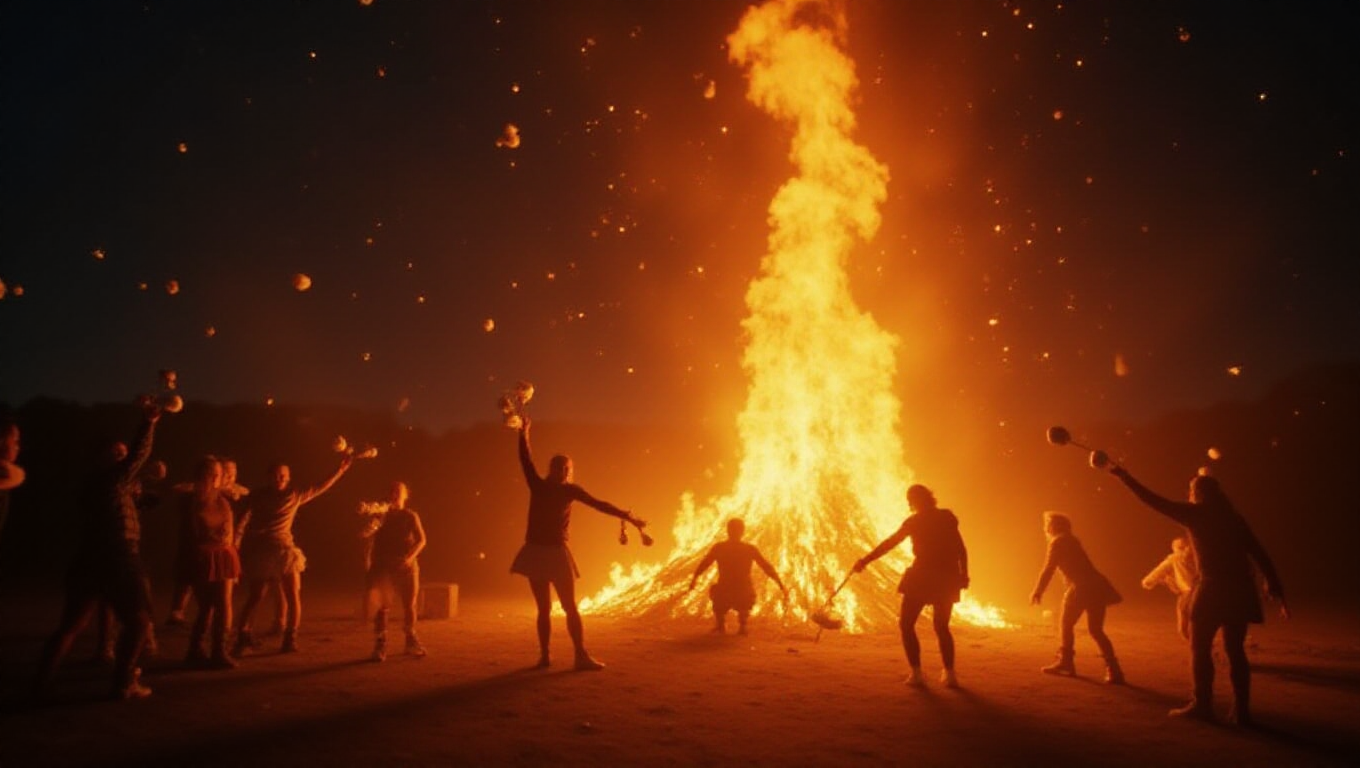Difficulty Level
intermediate
Translations
🇩🇪 Ein natürliches Element, das sich durch Hitze, Licht und Verbrennung auszeichnet.
, 🇪🇸 Un elemento natural caracterizado por el calor, la luz y la combustión.
, 🇮🇹 Un elemento naturale caratterizzato da calore, luce e combustione.
, 🇵🇹 Um elemento natural caracterizado por calor, luz e combustão.
, 🇨🇳 具有热、光和燃烧特征的自然元素
, 🇯🇵 熱・光・燃焼を伴う自然現象
, 🇰🇷 열, 빛, 연소가 특징인 자연 현상
, 🇸🇦 عنصر طبيعي يتميز بالحرارة والضوء والاحتراق.
, 🇮🇳 गर्मी, प्रकाश और दहन से युक्त एक प्राकृतिक तत्व।
Definition
🇫🇷 un élément naturel caractérisé par la chaleur, la lumière et la combustion
🇬🇧 A natural element characterized by heat, light and combustion
Usage Examples
- Le feu de camp brûlait doucement dans la nuit.
- Elle a allumé un feu dans la cheminée pour se réchauffer.
- Le feu d'artifice a illuminé le ciel nocturne.
Etymology
The French noun *feu* comes from Latin *focus* “fire, hearth,” which entered Old French as *fue* or *fou* via Vulgar Latin *focum*. Over time the spelling shifted to the modern *feu*, while the word’s meaning remained that of natural fire. The Latin root itself is linked to the Proto‑Indo‑European *peuk-* “to burn.”
Synonyms
incendie
flamme
conflagration
embrasement
combustion
incinération
incendie majeur
Antonyms
eau
glace
nuit
ombre
silence
